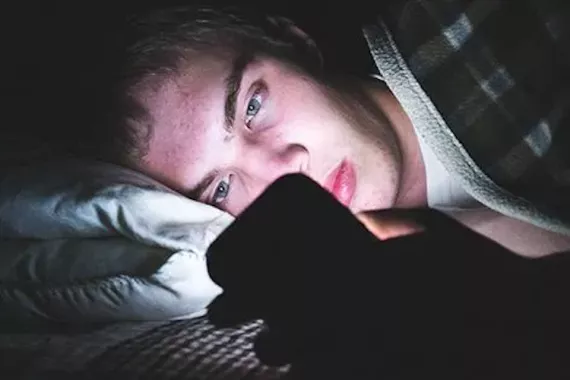
The Legal Team
- Andrew P. Arnold
- Esther E. Berezofsky
- Ebony Williams Bobbitt
- Riley Breakell
- Abigail Burman
- Jessica L. Carroll
- Grace P. Chandler
- Jessica C. Colombo
- Sara O. Couch
- Nelson L. Drake
- Jodi Westbrook Flowers
- Jade A. Haileselassie
- Mathew P. Jasinski
- Marlon E. Kimpson
- Annie E. Kouba
- Paul T. Lyons
- Kate E. Menard
- Donald A. Migliori
- Lance Oliver
- Jonathan D. Orent
- Joseph F. Rice
- Tammy Cauley Rivers
- Previn Warren
Case Overview
Young people are especially vulnerable to engaging features, idealized filters and the intense satisfaction of getting likes and comments on social media. Studies link these features of social media platforms to eating disorders like anorexia and bulimia. As concerns grow over the impact of social media on mental health, people are taking legal action against tech companies.
Key takeaways about social media and eating disorders
- Research links social media and eating disorders.
- Filters, photo editing and recommendation systems can intensify anxiety and low self-esteem. They can also increase exposure to pro-eating-disorder communities.
- Families may have legal options. Lawsuits are being filed nationwide based on allegations that platform design has harmed young users.
How are social media and eating disorders connected?
Social media and eating disorders are connected through the app design. Platforms use "persuasive architecture" designed to exploit the brain’s reward system, which is particularly sensitive during adolescence.
Features like infinite scroll and autoplay maximize the time users spend on the app. Those features eliminate a user’s natural, internal cues to stop using the app. Meanwhile, quantified feedback (likes and follower counts) creates a constant need for social validation that can lead to anxiety or depression.
Beauty filters and app-driven feeds distort reality. The distortion often triggers body dysmorphia or traps young users in harmful "rabbit holes." Being online all the time can shape beliefs about body image and influence self-esteem. It can also encourage unhealthy behaviors related to eating and weight.
Common eating disorders linked to social media use
The most commonly cited eating disorders related to social media use are:
- Anorexia nervosa
- Bulimia nervosa
- Binge eating disorder
Other related mental health conditions include:
- Addictive or compulsive platform use
- Anxiety
- Depression
- Self-harm
- Suicidal ideation
Resources for people struggling with eating disorders
Individuals struggling with eating disorders may benefit from professional support and community resources. Organizations dedicated to eating disorder treatment, mental health advocacy and crisis intervention offer guidance for those in need.
- National Eating Disorders Association (NEDA): Offers a helpline, treatment referrals and educational materials for individuals and families
- The Trevor Project: Provides crisis support for LGBTQ+ youth, including those affected by body image concerns and eating disorders
- Crisis Text Line: Gives free, 24/7 text-based support for people in crisis, including those struggling with disordered eating
- National Alliance on Mental Illness (NAMI): Offers support groups and educational resources for individuals facing mental health challenges, including eating disorders
If you or a loved one is experiencing disordered eating, seeking help from a medical professional, therapist or support group can be a critical step toward recovery.
How does social media influence body image?
Social media influence on body image is one of the strongest ways platforms can affect eating behaviors. Users frequently compare themselves to curated, edited photos that create unrealistic beauty standards. Filters and photo-editing apps can distort expectations about appearance and create “filter dysmorphia.” This condition causes users to feel distressed by their unedited appearance.
What is the impact of social media on eating disorders?
Social media apps can intensify eating disorders by repeatedly exposing users to images that reinforce negative thoughts about food, weight and self-worth. These apps are designed to increase the number of images based on user engagement, perpetuating and intensifying the cycle.
Sleep disruptions from nighttime scrolling can worsen mood, increase exhaustion, and heighten body dissatisfaction. Over time, digital environments that focus on appearance can significantly affect overall well-being.
Eating disorders and social media statistics
Recent research shows that adolescents who use social media have an increased risk of developing symptoms of eating disorders.
- A 2024 study found that teens who used image-based platforms more frequently and felt they had to match online appearance standards were more likely to report symptoms of eating disorders.
- Another 2024 study looked at how early adolescents used social media. Research showed that the more time they used screens and social media, the higher the odds they restricted food or binged. And the more likely they were to worry about their weight and appearance.
- A 2025 review of a wide range of studies with more than 55,000 participants found a consistent pattern. It linked social media comparison with higher levels of body dissatisfaction and symptoms of eating disorders.
- Across the studies, young people who spent more time seeing appearance-heavy content were more vulnerable to negative mood changes, body image concerns and disordered eating patterns.
Taken together, these findings indicate a clear pattern. Social media that emphasizes appearance, comparison, and idealized imagery can contribute to the development or worsening of eating disorders in young users.
Signs social media may be contributing to an eating disorder
Warning signs that social media is affecting a young person’s eating behaviors or self-image can include:
- Changes in eating habits: Restricting food, skipping meals or following extreme diets learned online
- Preoccupation with appearance: Heavy use of filters, frequent photo retakes or distress about unedited photos
- Increased secrecy: Hidden accounts, private groups or disappearing messages
- Mood changes: Irritability, isolation or distress after spending time on social platforms
- Compulsive exercising: Following influencer workout routines excessively or feeling pressure to “earn food”
How parents can respond
Parents can help by staying connected to what their teens are seeing online. If problems arise, ask open-ended questions and offer your support. Discuss unrealistic beauty standards, filters and editing tools with your children. Finally, set healthy boundaries on how much time your child spends on social media. Consider seeking professional help when disordered eating patterns appear.
Can families take legal action related to social media and eating disorders?
Families may have legal options related to eating-disorder harms connected to social media use. Lawsuits filed nationwide allege that major online platforms contributed to mental health harms through:
- Negligent design features
- Recommendation features that push harmful or appearance-based content
- Failure to safeguard minors
- Weak or misleading safety tools
Federal multidistrict litigation (MDL 3047) involves Meta Platforms (Facebook, Instagram), Snap Inc. (Snapchat), ByteDance (TikTok) and Google (YouTube).
Motley Rice social media litigation experience
Motley Rice represents families across the country, drawing on our experience in complex litigation involving product design and consumer harm. We proudly fight for young people and their families by suing tech companies for the harm they’ve inflicted. We are currently investigating claims involving social media and eating disorders.
How are social media and eating disorders connected?
How does social media influence body image?
What is the impact of social media on eating disorders?
Signs social media may be contributing to an eating disorder
Can families take legal action related to social media and eating disorders?
Motley Rice social media litigation experience
- Sources
- Bonfanti RC, Melchiori F, Teti A, Albano G, Raffard S, Rodgers R, et al. The association between social comparison in social media, body image concerns and eating disorder symptoms: A systematic review and meta-analysis. Body Image [Internet]. 2025 Mar 1 [cited 2025 Dec 18];52:101841.
- Chansiri, K., & Wongphothiphan, T. The indirect effects of Instagram images on women’s self-esteem: The moderating roles of BMI and perceived weight. 2021 July 29. New Media & Society, 25(10), 2572-2594.
- Chu J, Ganson KT, Testa A, Al-shoaibi AAA, Jackson DB, Rodgers RF, et al. Screen time, problematic screen use, and eating disorder symptoms among early adolescents: findings from the Adolescent Brain Cognitive Development (Abcd) Study. Eat Weight Disord [Internet]. 2024 Sept 4 [cited 2025 Dec 18];29(1):57.
- Chubbs‐Payne A, Lee J, Isserlin L, Norris ML, Spettigue W, Spence K, et al. Attitudes toward physical activity as a treatment component for adolescents with anorexia nervosa: An exploratory qualitative study of patient perceptions. Intl J Eating Disorders. 2021 Mar;54(3):336–45.
- Cleveland Clinic. Anorexia Nervosa.
- Cleveland Clinic. Bulimia Nervosa.
- CNN. Social media and eating disorders.
- Dahlgren CL, Sundgot-Borgen C, Kvalem IL, Wennersberg AL, Wisting L. Further evidence of the association between social media use, eating disorder pathology and appearance ideals and pressure: a cross-sectional study in Norwegian adolescents. Journal of Eating Disorders. 2024 Feb 29;12(1):34.
- Dane A, Bhatia K. The social media diet: A scoping review to investigate the association between social media, body image and eating disorders amongst young people. Singh R, editor. PLOS Glob Public Health. 2023 Mar 22;3(3):e0001091.
- Hornberger LL, Lane MA, THE COMMITTEE ON ADOLESCENCE, Hornberger LL, Lane M, Breuner CC, et al. Identification and management of eating disorders in children and adolescents. Pediatrics. 2021 Jan 1;147(1):e2020040279.
- McLean SA, Paxton SJ, Wertheim EH, Masters J. Photoshopping the selfie: Self photo editing and photo investment are associated with body dissatisfaction in adolescent girls. Int J Eat Disord. 2015 Dec;48(8):1132-40.
- Nawaz FA, Riaz MMA, Banday N ul ain, Singh A, Arshad Z, Derby H, et al. Social media use among adolescents with eating disorders: a double-edged sword. Front Psychiatry. 2024 Feb 9;15:1300182.
- Pedalino F, Camerini A-L. Instagram Use and Body Dissatisfaction: The Mediating Role of Upward Social Comparison with Peers and Influencers among Young Females. International Journal of Environmental Research and Public Health. 2022 Jan 29; 19(3):1543.
- Sidani JE, Shensa A, Hoffman B, Hanmer J, Primack BA. The Association between Social Media Use and Eating Concerns among US Young Adults. J Acad Nutr Diet. 2016 Sep;116(9):1465-1472.
- Wilksch, S., O'Shea, A., Ho, P., Byrne, S., Wade, T. The relationship between social media use and disordered eating in young adolescents. International Journal of Eating Disorders. 2020 Jan;53(1):96-106.
Start Your Motley Rice Consultation in Simple Steps
Submit Information
Call us or fill out our online form with the details of your potential case.
Case Review
Our team reviews your information to assess your potential case.
Case Consultation
Talk with us about next steps.



